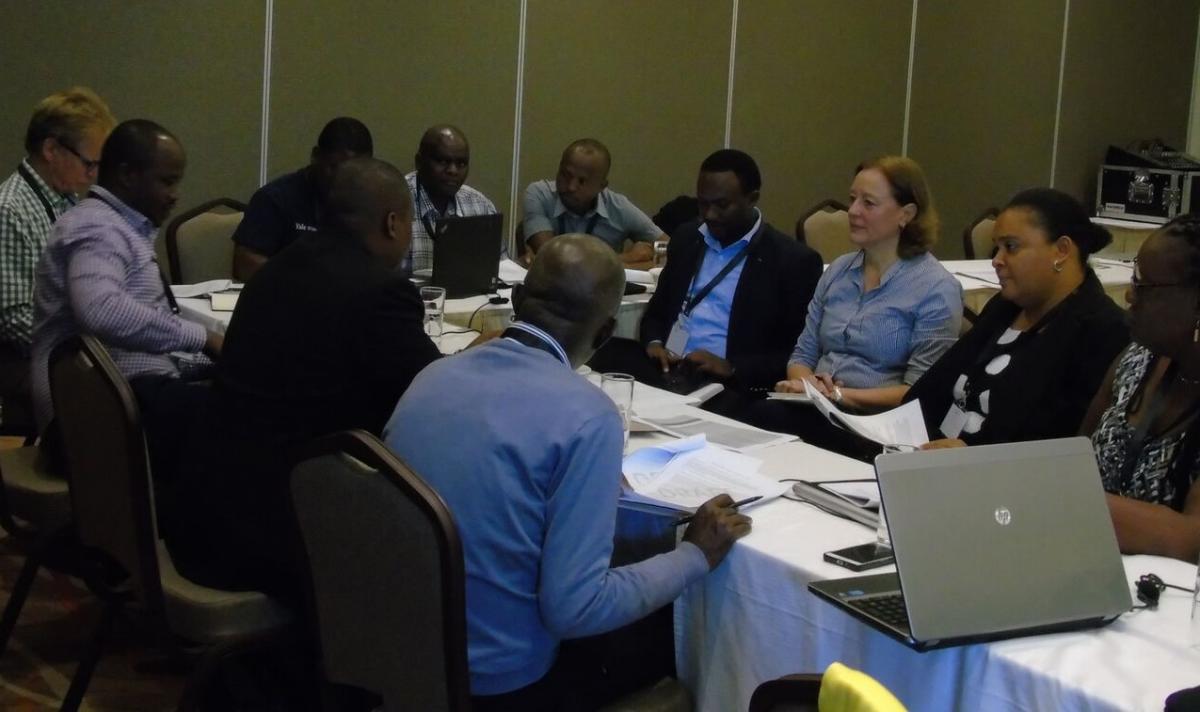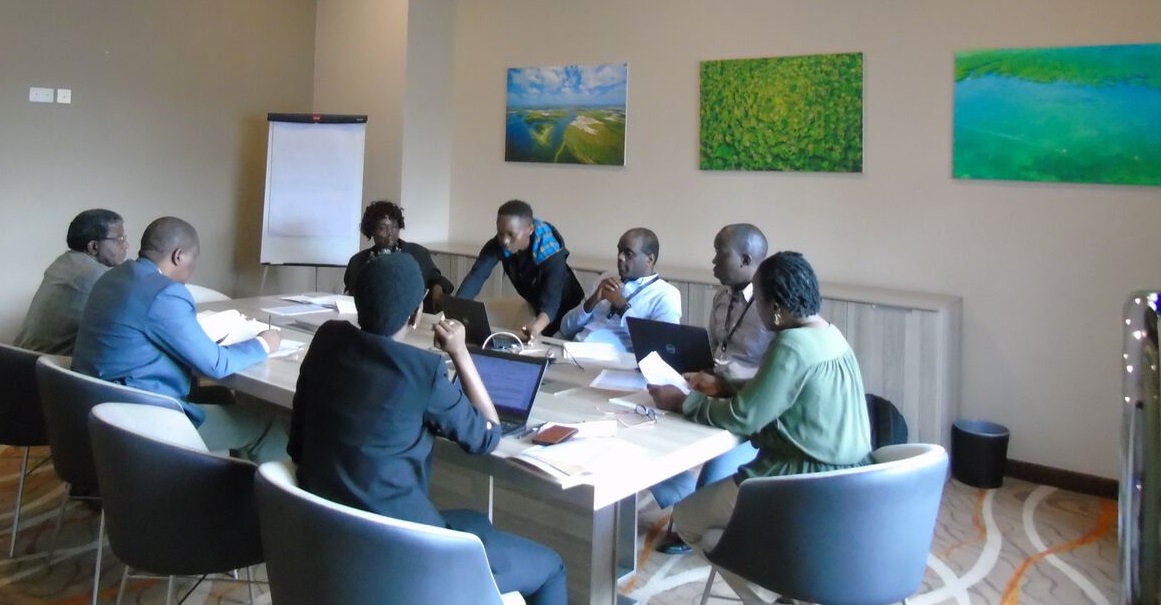NRGF Updates: From conceptual development to implementation with continued learning
CEESP News - by Jessica Campese, IUCN Natural Resource Governance Framework (NRGF) Chair
As the Natural Resource Governance Framework (NRGF) knowledge basket develops, it is increasingly moving from conceptual development to implementation, with wider-reaching learning and engagement. In 2018, this included sharing knowledge and identifying opportunities for action with IUCN programmes, members, and partners in Eastern and Southern Africa.
Governance is a critical determinant of the equity and effectiveness of natural resource and biodiversity conservation. The Natural Resource Governance Framework (NRGF), a flagship IUCN knowledge basket co-convened between CEESP and the Global Programme on Governance and Rights (GPGR), is an integral part of IUCN’s work towards a more just world that conserves nature. It is an initiative created for the purpose of providing a robust, inclusive, and credible approach to assessing and strengthening natural resource governance, at multiple levels and in diverse contexts. The NRGF is comprised of, inter alia, a Conceptual Framework of values, principles, and criteria important for equitable and effective governance, and a developing suite of tools and technical resources to put the Framework into action, including an Assessment Guide.
While it continues to develop, the NRGF is increasingly moving from conceptual development to implementation, e.g., facilitating natural resource governance assessments, analyzing the ways in which conservation initiatives address governance, and otherwise supporting rights-holders and stakeholders in identifying and addressing governance issues. Progress towards implementation also opens up new opportunities for learning and engagement across the Union.
In 2018, this engagement included sharing knowledge and identifying opportunities for action during a regional workshop organized by the IUCN Eastern and Southern Africa Regional Office (ESARO), CEESP, and GPGR, in Nairobi, Kenya (27 and 28 November). The workshop, with participants from 9 ESARO secretariat programmes and 21 IUCN member organizations across 8 countries in the region, included:
- Learning about the NRGF, including the Conceptual Framework and the ways in which it can be applied;
- Presentation and discussion of pilot NRGF applications, including an assessment facilitated by CEESP and the SUSTAIN-Africa project in Tanzania, as well two ESARO programmes’ tests of an NRGF tool designed to help understand and strengthen how projects and programs address governance issues;
- Presentation and discussion of governance-related work in ESARO’s Forest Landscape Restoration, Drylands, and Species Conservation and Protected and Conserved Areas Programmes;
- Participant suggestions for NRGF tools and technical resources that could help address governance in their work; and
- Participant identification of interests and opportunities for wider use of the NRGF in the region – from learning exchanges and regional training events to participatory assessments at various scales.
The NRGF team greatly appreciated the opportunity to learn from all the participants’ contributions and looks forward to continuing to engage with programmes, members, and partners in Eastern and Southern Africa on our common commitments to equitable and effective natural resource governance.
Other 2018 activities that advanced implementation of the NRGF 2017-2020 Strategy included:
- Revising the Conceptual Framework and Assessment Guide, including to incorporate inputs of the NRGF Technical Working Group, which met in October 2018 (Washington D.C.);
- Analyzing the extent to and ways in which ten IUCN governance-related tools and approaches correspond with NRGF principles, to build coherence across IUCN’s governance work; and
- Sharing the NRGF with stakeholders at the Communities, Conservation & Livelihoods conference (May 2018, Halifax).
CEESP will continue to support improved natural resource governance, including through the NRGF. We are also aware of the challenges that may come with implementation, including in ensuring that governance assessments lead to effective and ethical change, with the resources, capacities, and political will needed to move from learning to action. We look forward to the journey!
 Photo: Jessica Campese
Photo: Jessica Campese


